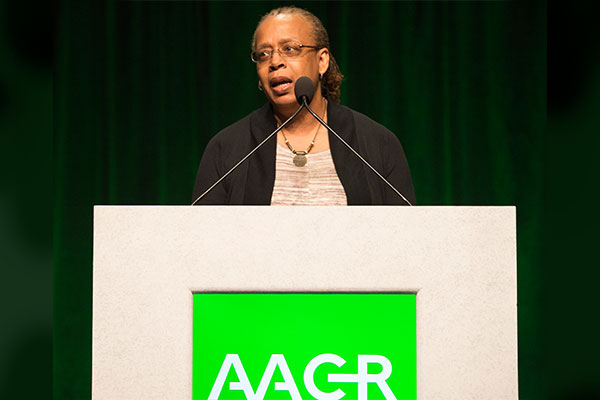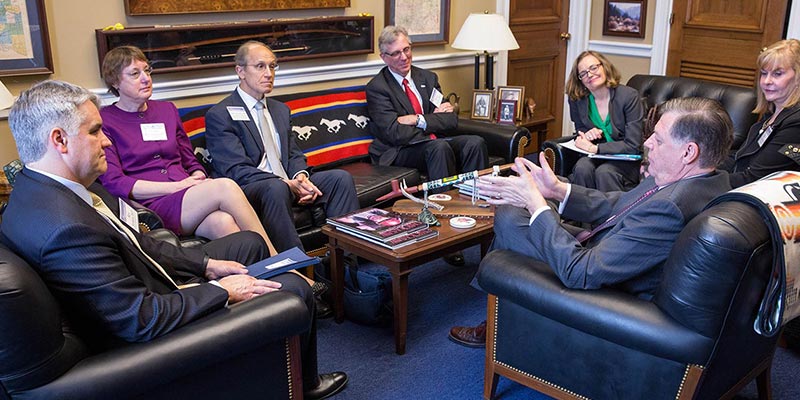
Science Policy and Government Affairs
In 2016, the AACR Office of Science Policy and Government Affairs continued to motivate lawmakers to invest in cancer science that will benefit cancer patients. At the same time, the AACR worked to optimize that investment by fostering more efficient and effective communication among legislators, regulators, scientists, and the public.
Leading the Call for Research Funding
While the cancer research enterprise is built upon the passion and talents of researchers, physician-scientists, survivors, and advocates, it is sustained through robust annual federal funding increases for the National Institutes of Health (NIH) and the National Cancer Institute (NCI). As the authoritative voice of cancer research, the AACR called upon all of those stakeholders throughout 2016 to request that members of Congress and Administration officials make cancer research a national priority.
LEE D. GIBBS
Associate Member of the AACR
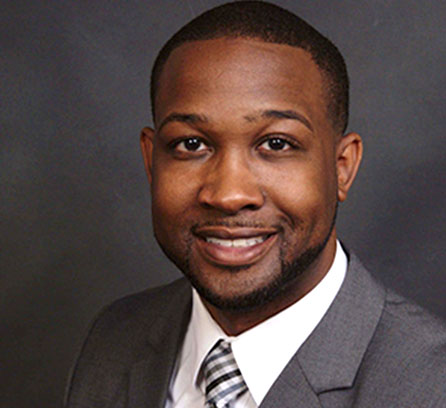
![]()
Lee D. Gibbs is an Associate Member of the AACR and a doctoral candidate in molecular and medical genetics at the University of North Texas Health Science Center in Fort Worth, Texas. With 14 of his fellow Associate Members, he participated in the AACR’s first Early Career Investigator Hill Day:
“As a graduate student, I have witnessed many of my colleagues’ aspirations detour from the path of independent research because of a lack of sustainable and predictable NIH funding… This event was a tremendous occasion as it trained me and my fellow early-career bench scientists in how to take our story and message to Capitol Hill. As a biomedical scientist, I have been trained in the responsibilities in the laboratory. But I also see the great value in being a ‘civic’ scientist.
AACR has lit the flame; now, it is our turn to carry the torch from the bench to the Hill.”
LEE D. GIBBS
Associate Member of the AACR

![]()
Lee D. Gibbs is an Associate Member of the AACR and a doctoral candidate in molecular and medical genetics at the University of North Texas Health Science Center in Fort Worth, Texas. With 14 of his fellow Associate Members, he participated in the AACR’s first Early Career Investigator Hill Day:
“As a graduate student, I have witnessed many of my colleagues’ aspirations detour from the path of independent research because of a lack of sustainable and predictable NIH funding… This event was a tremendous occasion as it trained me and my fellow early-career bench scientists in how to take our story and message to Capitol Hill. As a biomedical scientist, I have been trained in the responsibilities in the laboratory. But I also see the great value in being a ‘civic’ scientist.
AACR has lit the flame; now, it is our turn to carry the torch from the bench to the Hill.”
These advocacy efforts came to fruition in early December when the Senate passed the 21st Century Cures Act by an overwhelming majority. The bill establishes an NIH Innovation Account that provides $4.8 billion in supplemental funding for vital medical research programs—including $1.8 billion over seven years to support the recommendations of Vice President Biden’s National Cancer Moonshot Initiative.
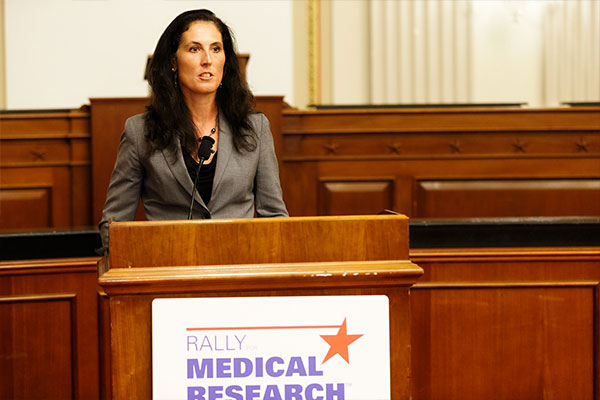
Connecting the Cancer Community with Policy Makers
Lawmakers and regulators rely on the AACR for guidance in developing cancer science policy. The AACR provided that guidance in 2016 by sharing critical perspectives from various stakeholders.
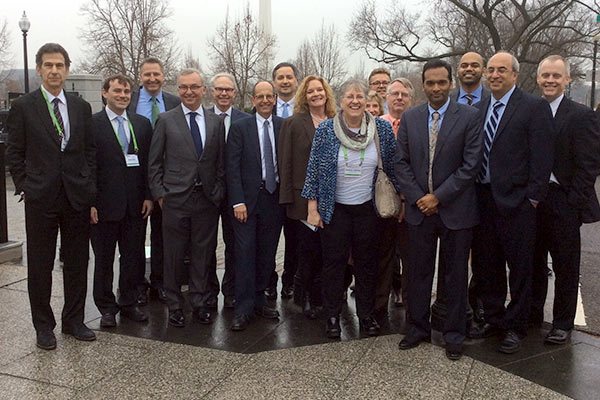

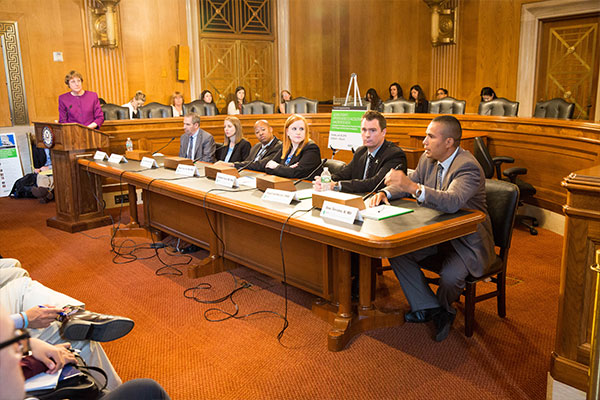
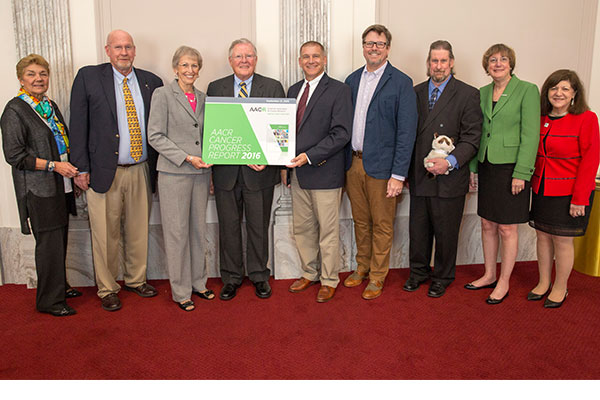
Fostering Dialogue between Regulators and the Cancer Community
At the interface between cancer science and cancer patients, the FDA plays a critical role in accelerating the delivery of innovative cancer treatments to meet the needs of patients and their families. The AACR continued its support of the FDA’s mission in 2016, partnering with the agency to engage researchers, physician-scientists, policy makers, and the public in discussions of important regulatory issues.
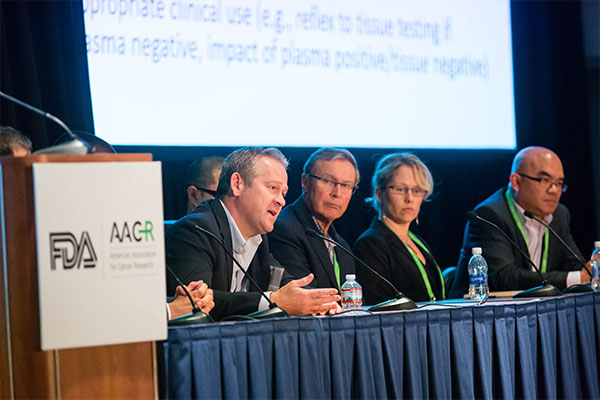

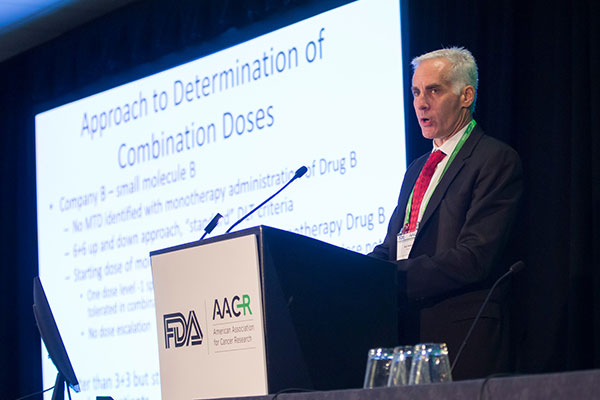
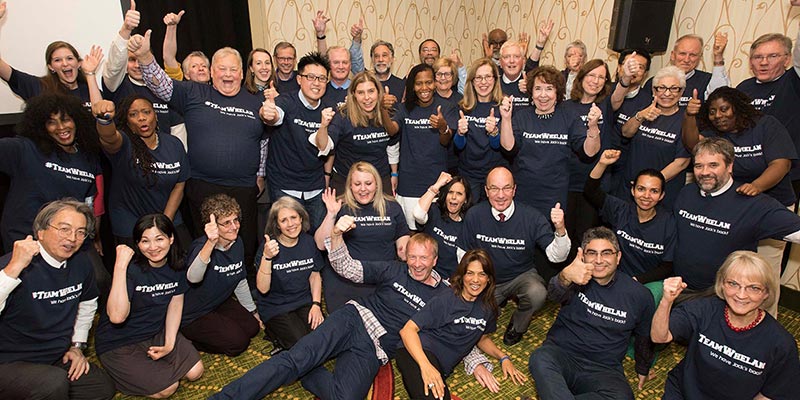
Survivor and Patient Advocacy
While the AACR’s meetings, journals, and research initiatives support the efforts of scientists and clinicians, its Survivor and Patient Advocacy Program reaches beyond the bench and the bedside to engage the patients, caregivers, and advocates who are the focus of its mission. Patient advocates are a vitally important part of the cancer field. Through programs and publications, the AACR works to ensure that patients feel at home in the cancer community and that, through education, they are empowered to understand their health and treatment options.
Scientist↔Survivor Program
More than 50 advocates participated in the program in 2016—including the first mother-son, caregiver-survivor duo; the first male breast cancer survivor; and the first advocate from the Caribbean island of Anguilla. These participants partnered with both scientist and advocate mentors at the Annual Meeting and the Cancer Health Disparities meeting to learn more about the innovative cancer science that impacts their lives.
A highlight of the Annual Meeting program was “Cancer Mini-Med School,” a unique lecture by Carolyn Compton, MD, PhD, that provided the participants with an education in the basics of cancer biology. The advocates built upon that foundation while attending scientific sessions and discussing the latest developments in the field with their mentors.
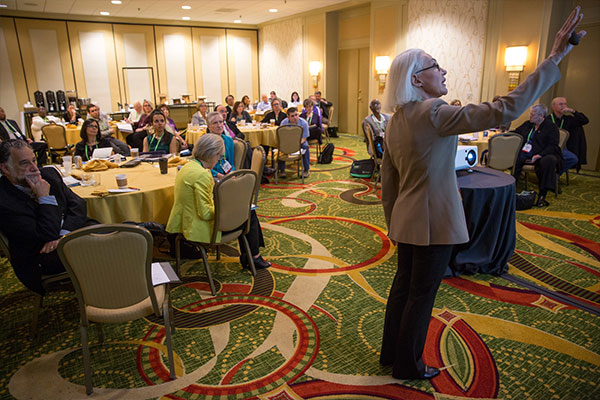

Cancer Today Magazine
Cancer Today, the AACR’s magazine for cancer patients, survivors, and caregivers, is a vital resource for anyone navigating the challenges of cancer diagnosis, treatment, and survival. In 2016, the magazine celebrated its fifth year of providing cancer patients with practical knowledge and real hope. Of the dozens of articles published over 20 issues of the magazine, the following rank among the most popular:
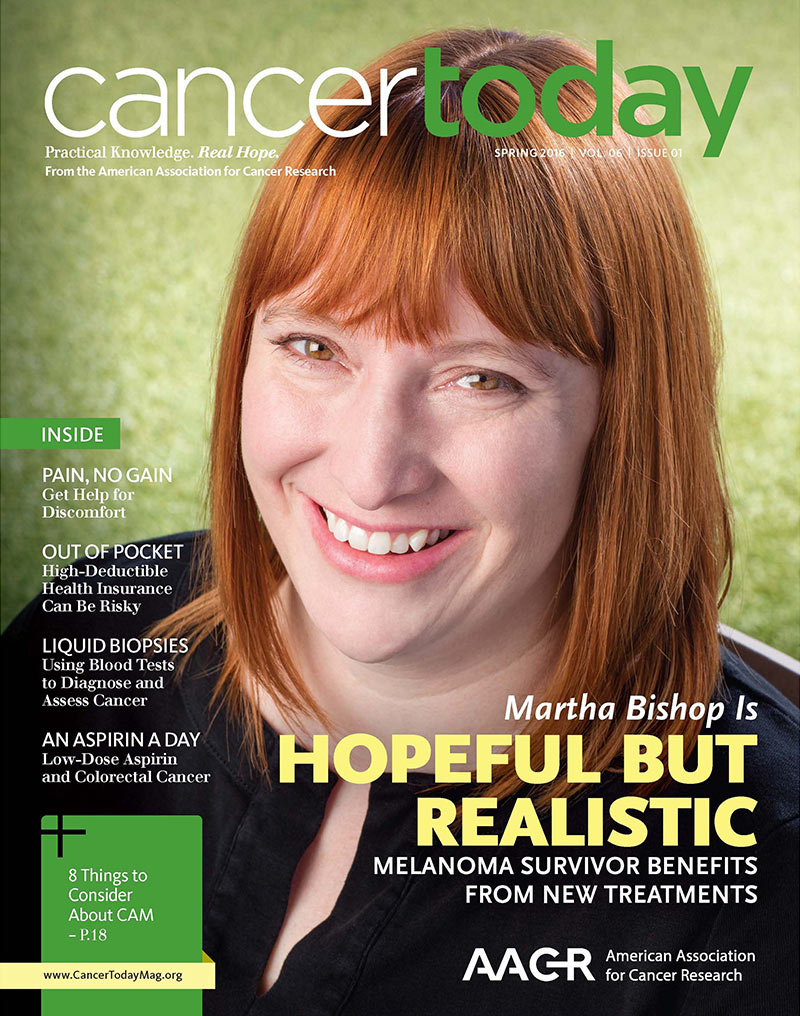

In February 2016, a reconstituted Cancer Today Editorial Advisory Board held its first quarterly meeting, under the guidance of editor-in-chief William G. Nelson, MD, PhD (right), director of the Johns Hopkins Kimmel Cancer Center in Baltimore. The 37-member board includes luminaries from cancer research, clinical practice, and patient advocacy.
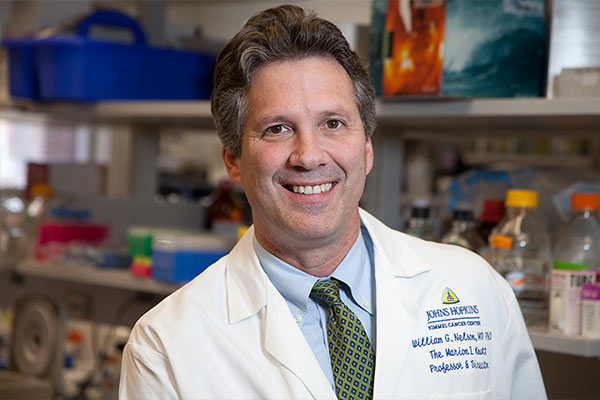
The magazine was honored for design excellence in 2016 with silver and bronze EXCEL awards and was a finalist in the design category of Folio magazine’s Ozzie Awards. Cancer Today also netted a 2016 Folio Eddie Award for the story, “The Cost of Cancer.”

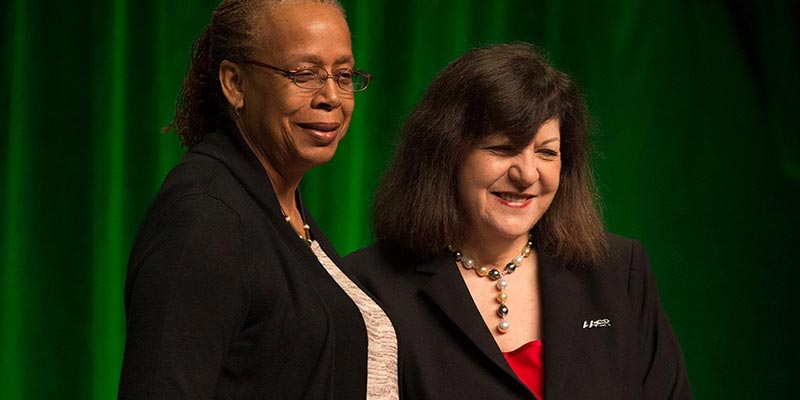
Public Service Award
AACR Distinguished Public Service Award
Many advances against cancer are made because of the dedicated efforts of remarkable men and women in all sectors of the cancer community. The American Association for Cancer Research (AACR) Distinguished Public Service Award honors the extraordinary contributions of an individual or group whose groundbreaking, innovative work exemplifies the AACR’s mission to accelerate the prevention and cure of all cancers through research, education, communication, and collaboration. Distinguished public service takes many forms, and past winners have included generous philanthropists, government officials, advocates, and the members of the media.
During the opening ceremony at the 2016 Annual Meeting, the AACR recognized the sustained contributions of Mary Jackson Scroggins. A 20-year ovarian cancer survivor and health activist, Mary is a cofounder of In My Sister’s Care, an organization focused on improving cancer care for medically underserved women and on eliminating cancer health disparities. Her national advocacy activities include serving on the President’s Cancer Moonshot Blue Ribbon Panel Working Group on Precision Prevention and Early Detection and the National Cancer Institute’s Cancer Prevention and Control Central Institutional Review Board.
An accomplished writer and editor, Mary serves on the Editorial Advisory Board of Cancer Today and has written numerous articles for the magazine. She has also been a key participant in AACR initiatives such as the Scientist↔Survivor Program, the High School Student Education Program, the AACR-Minorities in Cancer Research career roundtable, and the AACR/ASCO Educational Workshop on Methods in Clinical Cancer Research.
